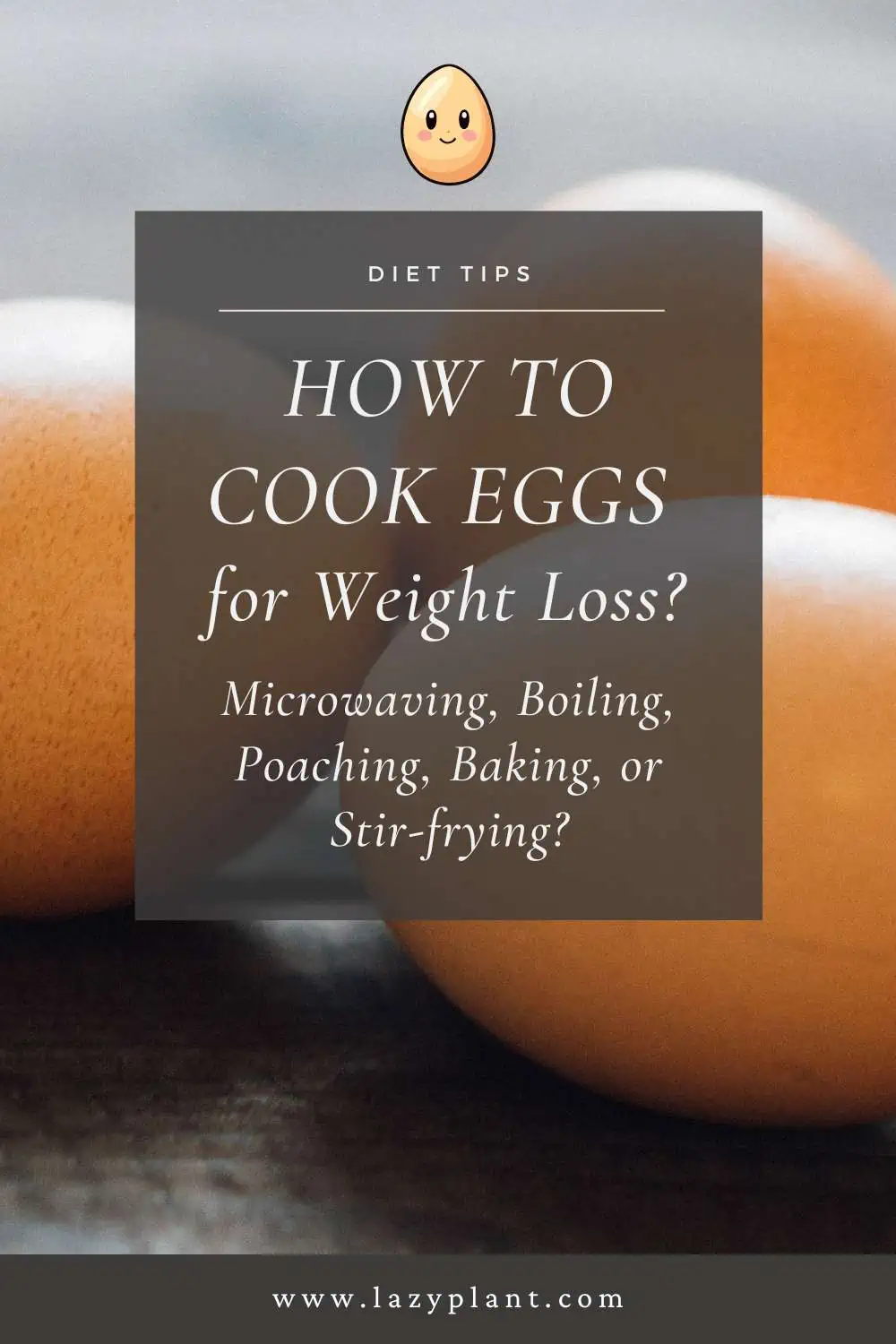An egg has only 74 calories. The best ways to cook methods for eggs are to boil, microwave, poach, or bake them, as the use of fatty ingredients, such as butter or vegetable oil isn’t implicated.
How many Calories are in an Egg?
Eggs aren’t high in calories. A large egg (50 g) contains only 74 calories. Most calories are found in the yolk. The yolk has about 56 calories, while the white of an egg has 18 calories.[1]
So, two boiled eggs contain almost 150 calories, while boiled 3 eggs contain about 220 calories.

Most calories of egg come from fat
Eggs are rich in protein and fat. A large egg contains about 6.2 grams of protein and 5 grams of fat. Therefore, about 25 calories of an egg come from protein and 45 calories come from fat.
About 60% of calories of an egg come from fat.
An egg contains 1.8 grams of monounsaturated and 0.9 grams of polyunsaturated fatty acids. These types of fat are beneficial for health when consumed in moderation.
But, eggs are high in saturated fatty acids as well. An egg contains about 1.6 grams of saturated fatty acids. The American Heart Association recommends consuming no more than 13 grams of saturated fats per day. High intakes may raise cholesterol and increase the risk of heart disease and stroke.[2]
Hence, just an egg contains 12% and a 3-egg omelet contains 37% of the maximum recommended daily intake of saturated fat. So, we can consume eggs regularly, only if we avoid other foods high in saturated fats. Animal-based foods are the main dietary sources of saturated fats.
In addition, eggs are among the richest foods in cholesterol.
On the other hand, eggs contain negligible amounts of carbs, like as sugar, starch, or fiber. As high fiber intake is crucial for good health and weight loss, you could combine eggs with foods rich in fiber. You’ll find many recipe ideas with eggs, vegetables, or other fiber-rich foods in this article.
Calories depend on the cooking method
Cooking method can significantly increase the calorie content of a meal.
Boiled, microwaved, baked, and poached eggs are the best cooking methods for losing weight. They have no extra calories. 3 large eggs contain only 220 calories.
Other recipes use fat for cooking. Butter and all vegetable oils are particularly high in calories. After all, they’re almost 100% fat. Just a tbsp of any vegetable oil has about 125 calories!
Moreover, many people eat eggs with cheese, sauces, bacon, and white bread, which is low in fiber. These foods are particularly high in calories. They can significantly increase the calorie content of a meal.
A typical 3-egg omelet contains about 350 calories! 220 calories come from eggs. The rest calories come from the added vegetable oil or butter.
If you add cheese, an omelet may have more than 600 calories. Furthermore, an omelet with bacon could exceed 1,000 calories! A serving of bacon has 760 calories.[3]
Top Choices:
- Boiling: This method uses no added fat and cooks the egg evenly, making it one of the lowest-calorie options. It’s perfect for hard-boiled or soft-boiled eggs.
- Poaching: Similar to boiling, poaching uses minimal water and no added fat, making it a low-calorie choice. Ideal for adding protein to soups, salads, or on toast.
- Microwaving: While not the most traditional method, microwaving eggs with a little water or milk can be quick and low-calorie. Just ensure you use proper technique to avoid overcooking.
- Baking: Baking eggs in a muffin tin with vegetables, spices, and minimal cheese can create delicious and calorie-controlled frittatas or individual portions.

Honorable Mentions:
- Steaming: Similar to boiling, steaming retains nutrients and uses minimal water, making it a healthy option.
- Stir-frying: This can be a good choice if you use minimal oil and lean protein ingredients like egg whites and vegetables. Choose a non-stick pan to reduce oil needs further.
Methods to Limit:
- Frying: This adds significant calories from oil or butter. Consider using a non-stick pan and minimal oil if you choose this method.
- Scrambled eggs: While versatile, these often involve using butter or oil and cheese, increasing calorie content. Opt for egg whites and minimal fat additions.
While cooking methods matter, focusing on portion control and overall dietary balance is crucial for weight management. Enjoy eggs creatively within your calorie goals!
Cooking Tips for Egg-Based Recipes with Calorie Control in mind
Cutting down calories to your favorite egg-based recipes is easy.
General Tips:
- Choose cooking methods with minimal added fat: Opt for boiling, poaching, steaming, or baking instead of frying or scrambling with a lot of butter or oil.
- Utilize non-stick cookware: This allows using less oil or even cooking fat-free.
- Swap whole eggs for egg whites: Egg whites are almost pure protein and very low in calories and fat.
- Use lean protein sources: Combine eggs with lean meats like chicken breast, turkey, or fish instead of high-fat sausages or bacon.
- Load up on vegetables: Vegetables add volume and essential nutrients to your dish without adding many calories. Choose low-starch options like spinach, mushrooms, peppers, or broccoli.
- Go easy on cheese: While cheese can be delicious, it’s also high in fat and calories. Use smaller amounts or choose low-fat options.
- Season strategically: Herbs and spices add flavor without adding calories. Experiment with different combinations to keep things interesting.
- Control portion sizes: It’s easy to underestimate portion sizes, so use measuring cups and spoons to ensure you’re staying within your calorie goals.

Recipe-Specific Tips:
- Scrambled eggs: Use only egg whites or mix whole eggs with egg whites. Add chopped vegetables like spinach, onions, or bell peppers for extra nutrients and reduced calorie density.
- Omelets: Fill your omelet with vegetables and lean protein, and sprinkle with low-fat cottage cheese. Avoid overloading with fillings as it can increase calorie content.
- Frittatas: Similar to omelets, choose low-calorie, high-volume ingredients like vegetables, lean protein, and egg whites. Opt for baking instead of frying.
- Egg muffins: These are great for pre-portioning and portion control. Make them with egg whites, chopped vegetables, and a sprinkle of low-fat cheese. Bake in muffin tins for individual servings.
- Salads: Add hard-boiled eggs or poached eggs to your salad for protein and healthy fats. Use a light vinaigrette dressing instead of creamy options. Even light mayonnaise can be part of a long-term hypocaloric diet plan.
- Soups: Poached eggs are a healthy and satisfying addition to soups. Opt for broth-based soups with lean protein and plenty of vegetables.
Remember, consistency is key when it comes to weight loss. By incorporating these tips and making small changes to your egg-based recipes, you can enjoy delicious and nutritious meals while staying on track with your calorie goals.
Should I eat Eggs regularly?
Certainly, eggs have a superior nutritional value. First, an egg has more than 6 grams of high-quality protein. Foods high in protein and fiber tend to keep us full for a long time. Moreover, eggs are excellent dietary sources of choline, vitamin A, vitamin B12, vitamin D, and omega-3 fatty acids! Also, eggs contain decent amounts of zinc, iron, calcium, and lecithin.
Can I lose weight by eating Eggs?
Consuming eggs in moderation can help you lose weight! Eggs per se are low in calories. Furthermore, they’re a very satiating food. But, we should consume reasonable amounts, as they’re high in cholesterol and saturated fats.
As a rule of thumb, active people who follow a healthy, plant-based diet, low in saturated fats, can eat more eggs than people who follow a sedentary life and consume too many animal-based foods.
I eat eggs with vegetables or oats for a super-filling and antioxidant-rich meal. Actually, the combination of eggs with oats has huge benefits for weight loss.
What’s the best time to eat eggs for weight loss?
Certainly, the best time to eat eggs in order to lose weight is in the morning. Eggs have a high satiating effect. They keep us full for much longer, as compared with other typical foods for breakfast, such as cereal, or bakery products.[4,5]
Hence, eating eggs for breakfast helps consume fewer calories in total in a day!
Also, a great time to consume eggs is at lunch. They could reduce cravings for unhealthy snacks.[6]
Above all, you should eat only boiled or poached eggs. Other cooking methods add many calories, due to the use of fat.
Myths about Cooking Eggs
- Myth: Only yolks are high in calories, so using just egg whites means zero-calorie eggs. Fact: While egg whites are lower in calories than whole eggs, they still contain calories. Additionally, yolks hold many essential nutrients like choline and vitamin D.
- Myth: Frying eggs is always a no-go for weight loss. Fact: Using non-stick pans, minimal oil, and lean protein can make fried eggs fit into a calorie-controlled diet. However, it’s generally not the most calorie-conscious option.
- Myth: Microwaving eggs destroys their nutrients. Fact: While prolonged microwaving can affect some nutrients, studies show a minimal difference in nutrient content between microwaved and traditionally cooked eggs.
- Myth: Scrambled eggs are always unhealthy due to added fat. Fact: You can enjoy scrambled eggs with minimal calorie impact by opting for non-stick pans, using minimal oil, and incorporating low-calorie ingredients like vegetables.
- Myth: Boiling makes eggs rubbery and tasteless. Fact: Proper boiling techniques (e.g., cold start, timer) yield perfectly cooked eggs. Season creatively with herbs and spices for further flavor enhancement.
- Myth: Overcooking eggs destroys their nutritional value. Fact: While overcooking can affect some nutrients, it doesn’t completely destroy them. The impact is generally minimal except in extreme cases.
- Myth: Brown eggs are healthier than white eggs for weight loss. Fact: The shell color has no bearing on nutritional value or calorie content. Both white and brown eggs offer similar benefits. The color of the yolk may indicate its nutritional value, though.

- Myth: Adding healthy fats like avocado to eggs negates their calorie savings. Fact: While healthy fats are beneficial, they still contain calories. Moderation is key when adding them to your egg dishes. In fact, the regular consumption of avocado has been strongly associated with a leaner body!
- Myth: Eating eggs at night hinders weight loss. Fact: As long as your overall calorie intake stays within your daily needs, the timing of eating eggs doesn’t significantly impact weight loss.
- Myth: Eating raw eggs boosts metabolism and aids weight loss. Fact: Raw eggs can harbor harmful bacteria like salmonella, posing serious health risks. Additionally, there’s no evidence they boost metabolism or aid weight loss.
- Myth: Adding vinegar to boiling water makes eggs peel easier and reduces calories. Fact: While vinegar might aid peeling, it has no impact on calorie content. Choose your cooking method based on personal preference and calorie goals.
- Myth: All commercially available eggs are created equal when it comes to calories. Fact: Omega-3 enriched eggs might have slightly higher fat content and calories than standard eggs. Check labels to make informed choices.
- Myth: Cooking eggs with certain vegetables magically eliminates their fat content. Fact: While vegetables themselves are low in fat, combining them with eggs doesn’t magically remove fat from the eggs. Enjoying both in moderation remains key.
Low-calorie Recipe Ideas
Breakfast:
- Mediterranean Scrambled Eggs (250 kcal): Scramble 2 egg whites with chopped spinach, tomatoes, and feta cheese. Eggs have been part of the famous plant-based Mediterranean diet for thousands of years!
- Open-Faced Egg and Avocado Toast (230 kcal): Toast whole-wheat bread, top with mashed avocado and a poached egg, and sprinkle with chili flakes.
- Spicy Egg Muffin (200 kcal): Mix chopped bell peppers, mushrooms, and cooked quinoa with 1 egg white. Bake in muffin tins for individual portions.
Lunch/Dinner:
- Salmon and Veggie Egg Scramble (300 kcal): Scramble 2 whole eggs with a chopped salmon fillet, bell peppers, and onions.
- Turkey and Egg Salad Lettuce Wraps (280 kcal): Mix chopped turkey breast, celery, low-fat mayo, and diced hard-boiled egg. Serve in lettuce wraps.
- Black Bean and Egg Bowl (350 kcal): Combine cooked brown rice, black beans, roasted vegetables, a poached egg, and a drizzle of olive oil.
- Lentil and Egg Curry (320 kcal): Make a simple lentil curry with spices and vegetables. Top with a poached egg for added protein.
Snacks:
- Egg and Veggie Skewers (150 kcal per skewer): Thread cherry tomatoes, cucumber slices, and hard-boiled egg onto skewers for a protein-packed snack.
- Edamame and Egg Salad Dip (180 kcal per serving): Mix mashed hard-boiled egg with edamame, red onion, and low-fat dressing. Serve with chopped vegetables.
- Veggie Omelet with Whole-Wheat Wrap (280 kcal): Use egg whites to make an omelet filled with spinach, mushrooms, and roasted vegetables. Wrap in a whole-wheat tortilla for a portable meal.
- Spicy toast (350 kcal): Simmer tomatoes, onions, and spices in a pan. Crack in eggs and poach until whites are set, top with fresh herbs and enjoy with whole-wheat toast.
These are estimates, and actual calorie counts may vary depending on ingredients, cooking methods, and serving sizes.